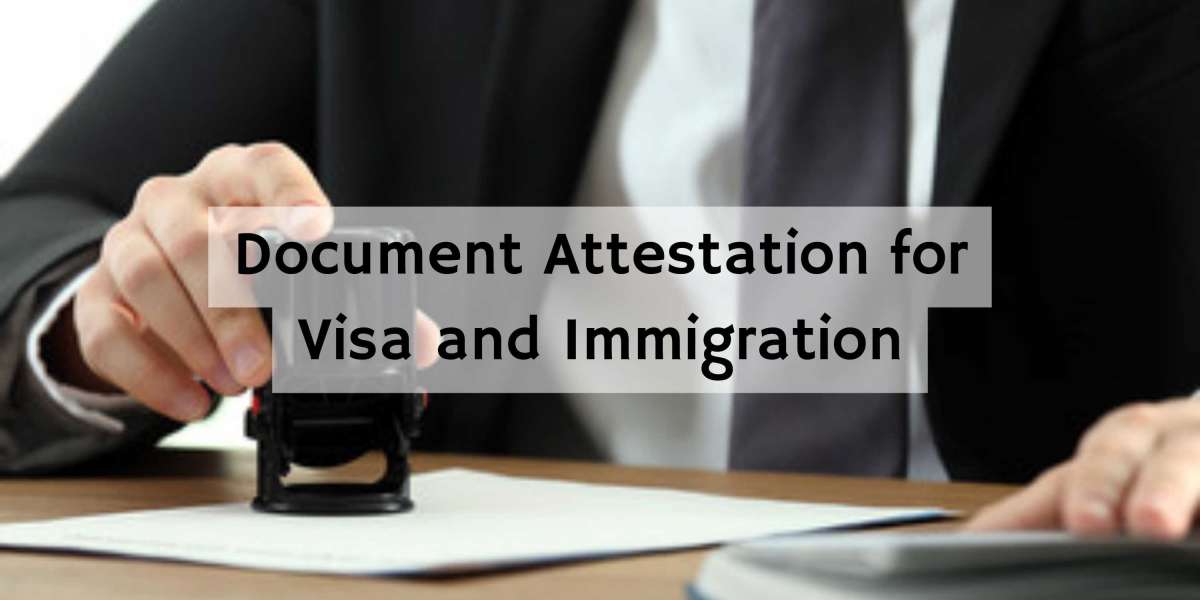Document attestation is an essential step in the immigration or visa application process. The process of an authorized body or organization confirming the authenticity of documents is known as document attestation. It guarantees the authenticity, validity, and legal recognition of the filed documents.
A document attestation procedure includes establishing the legitimacy and accuracy of a document. Verifying the authenticity and legal recognition of various document formats is a crucial stage in the process. Apostilled documents include birth certificates, marriage certificates, diplomas from educational institutions, and business documents.
The purpose of document attestation is to prove the accuracy and reliability of the information included in a document. To confirm the authenticity of the record, authorized officials must carefully review it. This process helps to prevent fraud and guarantees that the document can be legally acknowledged and recognized both domestically and internationally.
The process of document attestation can involve multiple steps, contingent on the specific requirements of the originating country or organization. The procedure typically begins with the document being verified by the issuing authority. Several government agencies, such as the Ministry of Foreign Affairs or the embassy or consulate of the intended country, may need to certify the document after it has been confirmed.
Verifying the document's signatures, seals, and other essential details is typically part of the document attestation process. The aim is to confirm that a respectable organization published the document and that the information it contains is accurate. Another aspect of attestation is verifying the identity and qualifications of the person who signed or issued the document.
The following are the main factors to take into account while document attestation for immigration and visas:
Understanding the Requirements:
It is crucial to fully comprehend the requirements specified by the destination country's immigration authorities before starting the document attestation process. Following the different national regulations and procedures for document attestation is essential to avoid any delays or denials in the visa or immigration application.
Document Types:
The kinds of documents that need to be attested can change based on why the applicant is requesting a visa or immigration. Employment letters, police clearance certificates, marriage and birth certificates, and educational certificates are among the standard documents that frequently require attesting. Acquiring the necessary papers for attestation requires careful identification and gathering.
Authority Attestations:
Document attestation needs to be completed by organizations or authorities with authorization. Government departments, embassies, consulates, and approved attestation agencies are a few examples of these authorities. Choosing the proper attestation authority is crucial, taking into account both the destination and the country in which the documents were issued.
Attestation Procedure:
Usually, there are several steps in the attestation process, some of which may include verification by various authorities. Notarization, in which a notary public authenticates the document, often commences the procedure. Attestation from the Ministry of Foreign Affairs or a department akin to it in the home nation comes next. Lastly, the destination country's embassy or consulate may need to verify the necessary documents.
Fees and timelines:
Attesting documents can take some time, so schedule appropriately. Depending on the nation, the kind of document, and the attestation authority involved, the processing time for attestation may change. It is advisable to start the attestation process well in advance to ensure timely completion. It's also vital to factor in any fees related to document attestation when planning your budget for visa or immigration-related charges.
Translation requirements:
Documents that are outside the target nation's official language may occasionally need to be translated. It is crucial to determine whether translation is required and if attesting the translation is also required. Accurate and legally acceptable translations can be ensured by using a professional translation agency or translator.
The attestation of documents is an essential step in the visa and immigration procedure, and it is crucial to take the aforementioned essential factors into account. An applicant can guarantee a more seamless and successful visa or immigration application by comprehending the requirements, obtaining the required documentation, determining the proper attestation authorities, adhering to the attestation process, taking deadlines and fees into account, and taking care of translation requirements.



